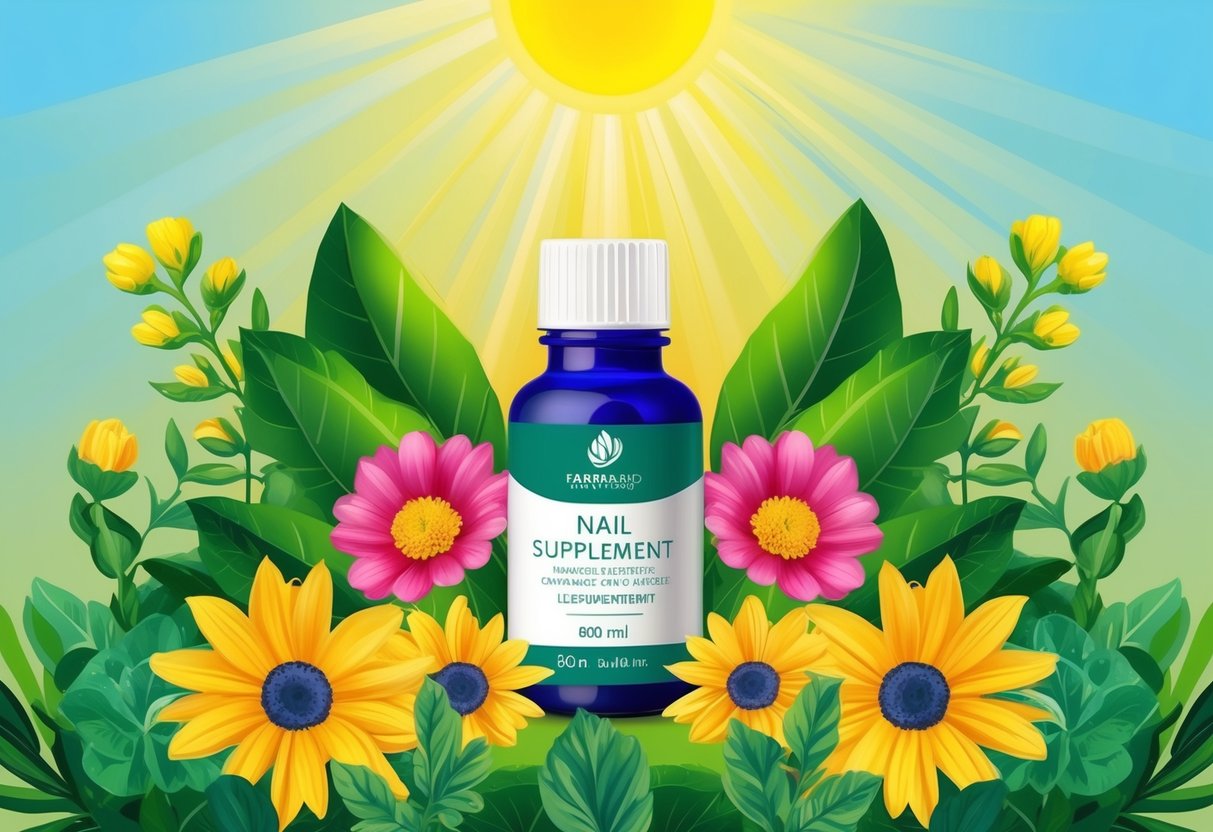Best Beauty Supplements for Radiant Skin, Hair, and Nails: What Really Works
Hair Health: Promoting Growth and Strength
Achieving healthy hair requires the right combination of nutrients, targeted supplements, and daily care practices. Effective hair health strategies focus on ingredients that promote hair growth, minimize hair loss, and support the integrity of each strand.
Key Hair Growth Supplements
Biotin is widely recognized for its role in improving hair growth and strength. As a B-vitamin, biotin supports the production of keratin, which is a fundamental building block for hair.
Many people seeking a biotin boost turn to supplements, as some studies link biotin deficiency to thinning hair. Collagen is another essential supplement.
It can help maintain scalp health and supply amino acids that contribute to new hair growth. Products combining biotin, collagen, and keratin aim to support comprehensive hair health by addressing several deficiencies at once.
Other beneficial nutrients include vitamin D, iron, and zinc, each of which has shown importance for healthy follicles and optimal hair structure. High-quality supplements targeting these needs often blend these ingredients into one formula for convenience and effectiveness.
Reducing Hair Loss
Minimizing hair loss relies on both external care and nutritional support. Iron plays a crucial role in this process, as low iron levels are linked to increased shedding, especially in women.
Supplementing with iron, alongside B vitamins and vitamin D, can be especially effective for individuals with confirmed deficiencies. Omega-3 fatty acids, found in both fish oil supplements and plant-based alternatives, help reduce inflammation of the scalp and provide essential fats for hair follicle function.
These nutrients are often included in hair loss support formulas because they not only improve scalp health but also contribute to the hair’s moisture barrier. Some hair supplements combine nutrients such as collagen, arginine, and antioxidants to further protect against oxidative stress, which can lead to weaker hair follicles.
It’s important to choose clinically supported formulas to maximize results and avoid unnecessary additives.
Nutrients for Strong, Shiny Hair
Hair strength and shine depend on a balanced intake of vitamins, minerals, and proteins. Collagen and keratin supplements provide structural proteins that reinforce each strand, helping prevent breakage and dryness.
These are commonly blended with biotin to create comprehensive hair support formulas. Antioxidant vitamins like vitamin E and vitamin C not only protect hair from environmental damage but also encourage the absorption of other nutrients vital to hair health.
For example, vitamin C aids collagen synthesis, which in turn benefits scalp circulation and overall hair vitality. Consuming a diet or supplement regimen rich in these nutrients supports strong, lustrous hair that resists everyday wear.
For more on the top-rated hair health vitamins and supplements, see this detailed guide to the best vitamins for hair, skin, and nails.
Nail Health: Achieving Stronger, More Resilient Nails

Optimal nail health depends on targeted nutrients as well as daily habits. Incorporating science-backed beauty supplements and preventive care can make a noticeable difference in nail appearance, strength, and growth.
Essential Supplements for Nail Strength
Certain supplements have gained recognition for their role in supporting strong nails and reducing brittleness. Biotin, a B vitamin, is among the most recommended ingredients for nail health.
Research and expert recommendations suggest biotin may help improve firmness and reduce splitting. Collagen is another key addition to a supplement regimen for nails.
Collagen provides essential amino acids that support the nail bed and structural integrity. Some beauty supplements combine biotin with collagen and other nutrients like keratin and vitamin B complex for a multi-faceted approach to strengthening nails and enhancing growth.
An example daily supplement may include:
| Supplement | Benefit |
|---|---|
| Biotin | Strengthens, reduces splitting |
| Collagen | Supports structure and growth |
| Keratin | Enhances nail resilience |
| Vitamin B6, B12 | Aids growth and metabolism |
Consistency is crucial for visible results. Most users experience improvements within a few months of daily use.
Preventing Brittle and Weak Nails
Brittle or weak nails can result from both internal deficiencies and external habits. While supplementing with biotin and collagen can be beneficial, lifestyle changes are equally important in preventing breakage and promoting resilience.
Daily strategies include keeping nails moisturized and avoiding harsh chemicals. Using gentle nail care tools is also recommended.
Adequate hydration and a balanced diet rich in protein and minerals play a role in nail health. For those prone to brittleness, a combination of a targeted supplement regimen and habits such as minimizing water exposure and wearing gloves during chores is suggested.
Science, expert opinions, and some user experiences support taking a holistic approach for best results.
Collagen Supplements: Benefits for Youthful Appearance
Collagen is a structural protein essential for maintaining skin elasticity and firmness. Supplementing with collagen can help support a youthful glow by aiding the body’s natural collagen production, which tends to decline with age.
Types of Collagen Supplements
Collagen supplements come in several forms, each with distinct benefits. Bovine collagen is sourced from cows and typically contains types I and III collagen, which are important for skin and hair support.
Marine collagen is extracted from fish and is known for its high absorption rate and concentration of type I collagen, highly relevant for skin health. Vegan collagen is not true collagen but is formulated from plant-based ingredients intended to support the body’s own collagen synthesis.
These supplements are available as powders, capsules, and liquid forms. When comparing products, the source, bioavailability, and presence of added ingredients like vitamin C (which supports collagen synthesis) are important factors to consider.



